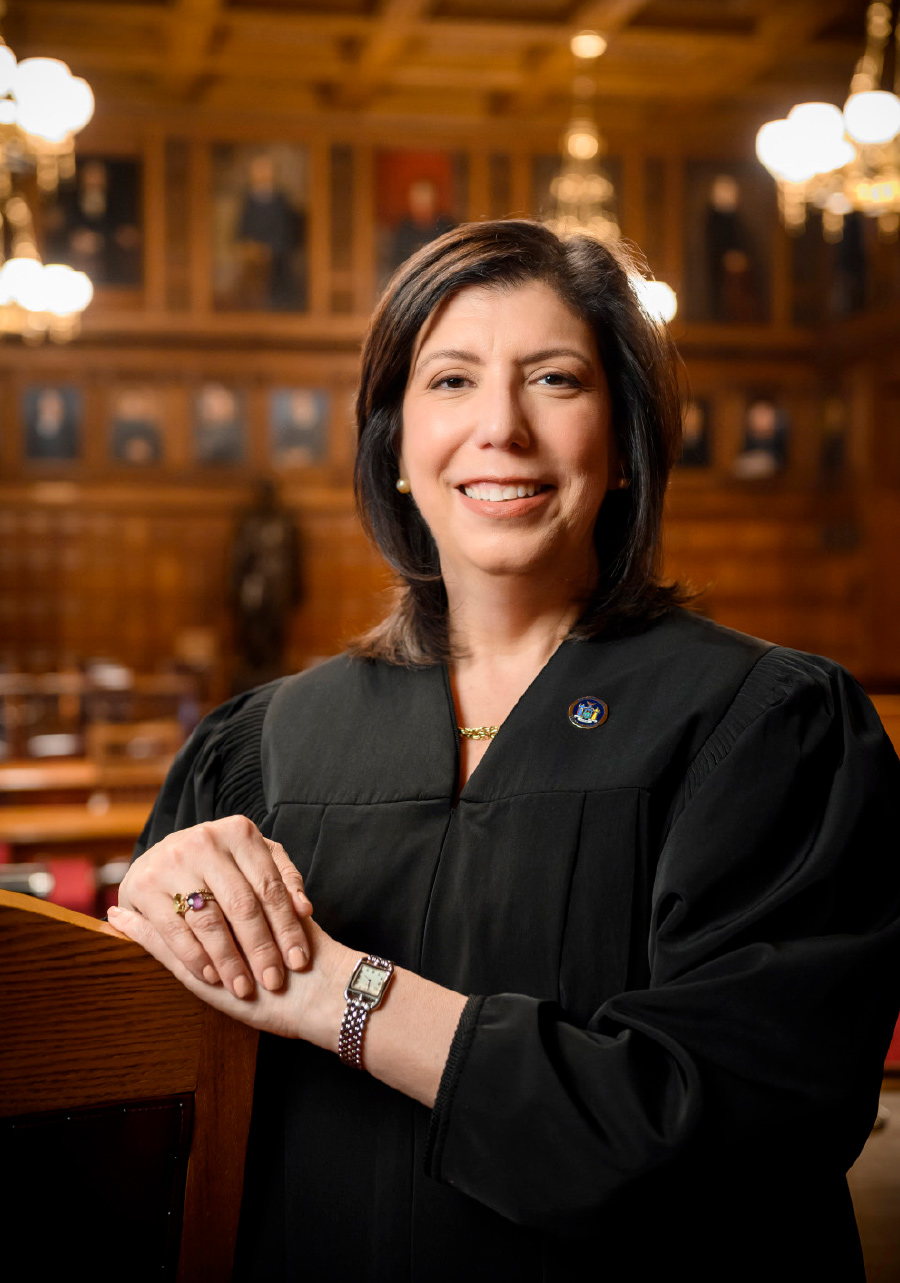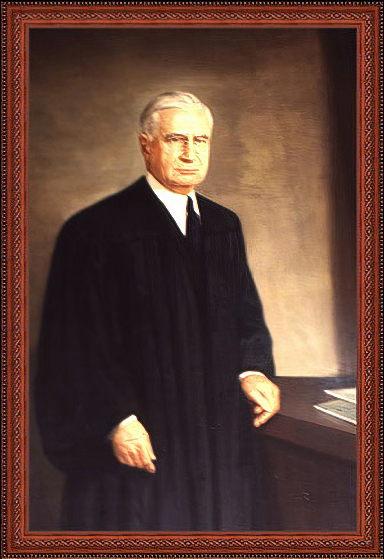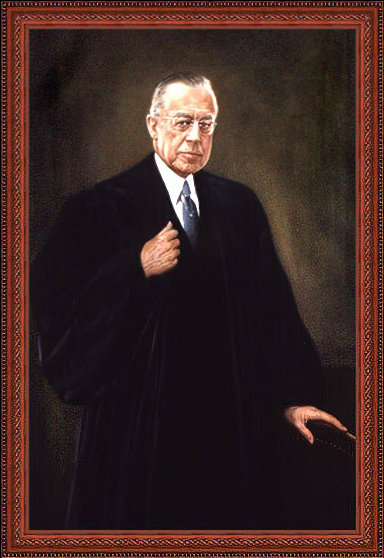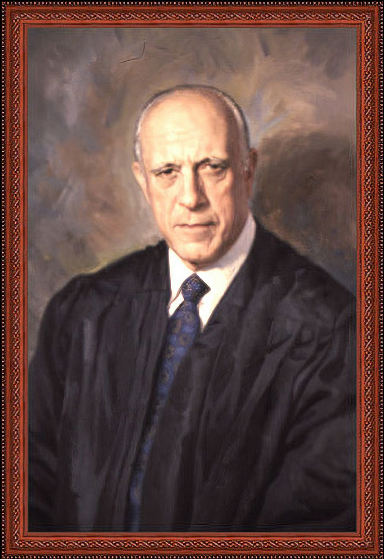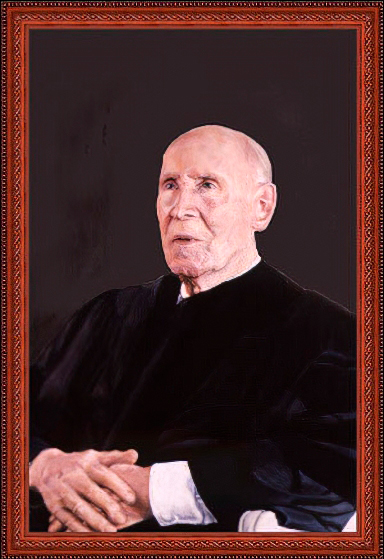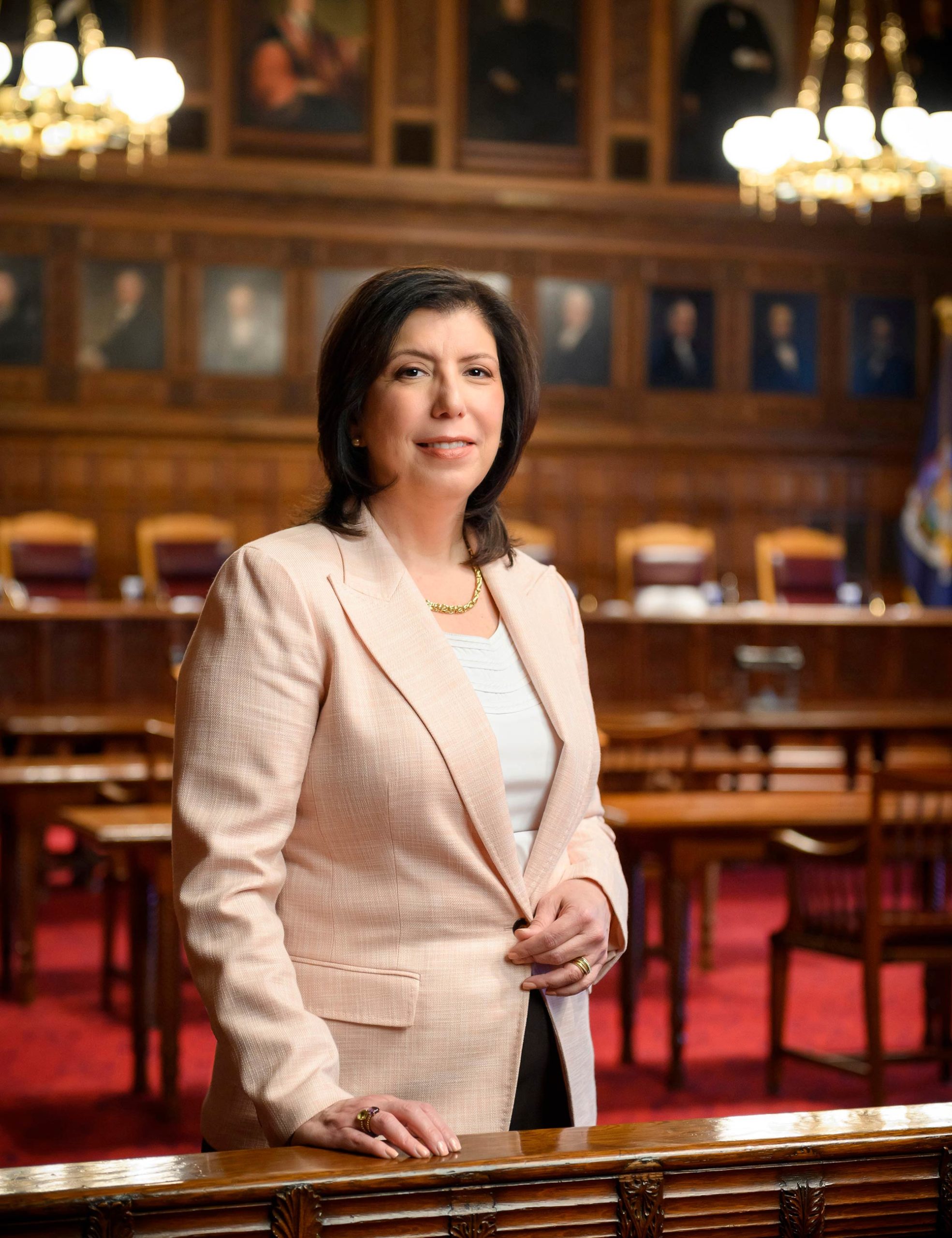
All Rise

Madeline Singas ’91

rowing up, Madeline Singas ’91 spent many afternoons at her family’s pizza shop in Queens, but she never pulled a hot slice from the oven or took a customer’s order. Her parents, immigrants from Greece who didn’t finish high school, never let her or her sister work at Singas Famous Pizza. She was there with her schoolbooks, doing homework.
“My parents didn’t speak English well, but the one word they mastered was ‘study,’ she recalled. “They saw education as a vehicle to a better life for their kids.”
That reverence for education led Singas to a 30-year career in the public sector, during which she focused on improving the lives of vulnerable groups, including the elderly, immigrants, and survivors of domestic violence. Her career also blazed a trail for Greek Americans: In 2015, she became the first Greek American woman to serve as a district attorney in New York state. And last year, Singas was appointed associate judge of the New York State Court of Appeals, the first Greek American to sit on the state’s highest court.
After graduating from Barnard with a degree in political science, Singas thrived at Fordham, where she was drawn to courses on criminal law. “There were a lot of children of immigrants and those from blue-collar families, and I felt a real affinity for them,” she said. She began her career as an assistant district attorney in New York’s Queens County, where she specialized in addressing domestic violence. “It was a time when women didn’t have a lot of faith in the criminal justice system to protect them in these situations, and often law enforcement didn’t take that crime as seriously as it took other crimes,” she said. “I couldn’t believe the amount of violence that children and women were subjected to in their own homes by people that purportedly loved them. I wanted to be a voice for them.”
One of Singas’ top priorities in leading the Nassau District Attorney’s Office was thinking outside the box about solutions to recalcitrant problems. Her office focused on offering more alternatives to incarceration, especially for young offenders who committed crimes such as theft. “We tried to seek out the root causes of crime and to look at what’s going on in their lives, such as substance abuse or anger issues, and provide them with services to address those issues,” she said.
Singas also created the first Office of Immigrant Affairs in Nassau County to help immigrants navigate the criminal justice system. She recognized that criminals often target immigrants because they think they will hesitate to report crimes. “We wanted immigrants to feel safe coming to law enforcement,” she said. In an office that was predominantly male, she also focused on creating a supportive environment for women, establishing its first family leave program and advocating for female employees. By the end of her tenure, 65 percent of the office’s managers were women, Singas said.
As a judge, Singas joins a long line of Fordham Law alumni who have served on the Court of Appeals, while breaking new ground as the first female Fordham graduate to sit on the Court. (One of her clerks is Gregory Manring, a member of the Law School Class of 2018.) “I feel that a commitment to service is a Fordham tradition,” said Singas.
She finds herself employing the skills she learned in law school in her rigorous analysis of the law and the contours of each case before meeting with her fellow judges to reach decisions. “There’s a lot of give-and-take with my colleagues,” she said. “We want to move the law forward in a just and fair way, but these are difficult cases. If they come to the Court of Appeals, there is no easy answer for them.”
In her short time on the Court, Singas has already found ways to make her mark. In May 2022, she authored a unanimous decision that overturned a murder conviction. In the ruling, Singas and the Court of Appeals found that the Queens judge overseeing the original murder trial improperly excluded evidence that could have supported the defense.
In her many high-profile roles, Singas has been a trailblazer for women and immigrants. “I hear from so many people that my story is really their story, whether they are Greek American or not, because it’s the quintessential immigrant story,” she said. “People take a lot of pride and hope from that story.” She can’t help but think about her parents’ role in her life and her desire to carry on the values they passed on to her, she said: “I always saw the law as a vehicle for good, an agent for change, and for achieving what my parents instilled in us: using your education to make the world a better place.”
